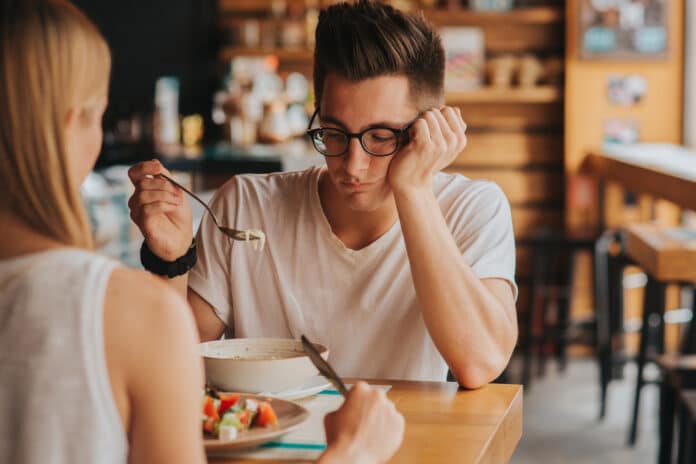
Anxiety is a mental condition characterized by an inappropriate amount of worry and stress. Often, those with anxiety worry more than the average person and worry about situations that others often do not.
However, anxiety is more than just mental. Anxiety triggers the central nervous system and therefore has physical side effects, too. In a 2013 study published by the American Psychological Association, 30% of Americans reported they had skipped a meal due to stress.
Undereating is directly related to acute stress, such as the first day on a job or a terrible traffic jam. Stressors such as these activate the fight or flight response in the central nervous system. This response, designed to keep us alive by increasing the ability to quickly respond to a situation, also dampens our appetite so the focus can go elsewhere.
Someone with chronic anxiety lives in a heightened stress state, therefore the fight-or-flight response, and its consequences, can be prolonged and consistent.
Signs of Stress-Related Undereating
At first, a poor appetite and stress may seem unrelated. However, in periods of high stress or anxiety, one might notice certain changes in eating habits, including:
- Losing the desire to eat.
- Skipping meals, typically unintentionally.
- Working for hours without breaking to eat or thinking about food.
- Forgetting to eat for long periods.
- Weight loss.
How to Manage Emotionally Driven Appetite Changes
If you find your appetite decreases when your anxiety increases, the most important factor is to address the mental health challenges at hand. Through therapy, counseling, or medication, consistent anxiety can be quelled.
You can also try more practical measures to regulate your eating, such as:
- Keep a food diary to track your eating and ensure you are getting enough nutrition.
- Set alarms for each meal so you are less likely to forget or skip meals.
- Exercise regularly, to regulate your psychosomatic response to stress and create more natural hunger urges.
Conclusion
It is normal to have periodic episodes of dampened hunger when faced with acute anxiety. However, for those with ongoing anxiety disorders, underrating is a serious issue. It can lead to uncontrolled, unhealthy weight loss and other issues. If you are chronically underfeeding yourself, and have co-occurring anxiety, it’s important to treat the mental health issues at hand.
Sources:
Can Anxiety Kill Your Appetite? Why We Under (and Over) Eat (verywellhealth.com)
Stress and eating (apa.org)
Anxiety and Appetite Problems (calmclinic.com)



















